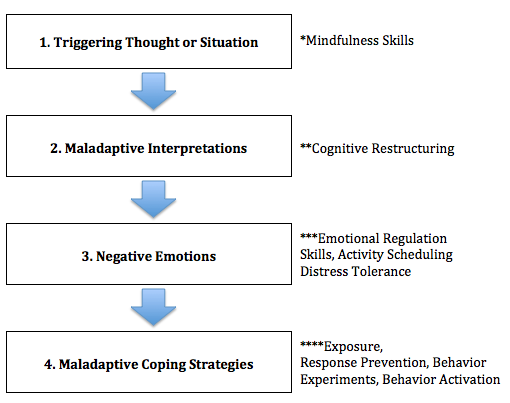Anxious Kids, Anxious Parents
Question: Would there be any difference in your answer to this question – What time are you picking me up from school today? – if your child was anxious or not?
Answer: Hopefully!
Reassurance-seeking is a major problem behavior in kids who are anxious. They continue to ask the same question well beyond the point at which they understand the answer. The way these questions function is to help get rid of a general uncertain and unsure feeling. For a kid who doesn’t have a problem with anxiety or uncertainty, it’s probably necessary to answer the question with a clear and certain answer. But then again, these kids aren’t going to ask you a second, third or tenth time.
Anxious Kids, Anxious Parents by Reid Wilson gets into great detail about why answering reassurance questions with clear answers – and doing it repeatedly until the child stops asking – is feeding the anxiety and making an already big problem even bigger. The goal is to gradually help the child be more okay with uncertainty. So in other words, we can help reduce anxiety by allowing the child to be uncertain on purpose.
Before embarking on a reassurance diet with your child, teach him or her about anxiety. The book does a good job of educating on anxiety and there’s also a companion book called Playing With Anxiety: Casey’s Guide for Teens and Kids, which is a free e-book. Next, try to get your kids’ buy-in; it can reduce conflict once you get started with the process. And eventually work on answering these pesky questions differently to help grow a tolerance for uncertainty.
How to Get Help for your Anxious Child in San Jose/Los Gatos and Sacramento/Roseville
The Cognitive Behavior Therapy Center specializes in therapy and counseling with adults, children and teenagers. Click to send an email for more information on how we can help you or your family members improve your outlook.
Silicon Valley and Sacramento Valley Communities We Serve
Cognitive Behavior Therapy Center of Silicon Valley offers evidence-based therapy for Anxiety and Obsessive Compulsive Disorder near the following Silicon Valley/San Jose communities:
San Jose Therapy Counseling • Saratoga Therapy Counseling • Los Gatos Therapy Counseling • Monte Sereno Therapy Counseling • Cupertino Therapy Counseling • Campbell Therapy Counseling • Mountain View Therapy Counseling • Los Altos Therapy Counseling • Sunnyvale Therapy Counseling • Santa Clara Therapy Counseling
Cognitive Behavior Therapy Center of Sacramento Valley offers evidence-based therapy for Anxiety and Obsessive Compulsive Disorder (OCD) near the following Sacramento Valley and Sierra communities:
Sacramento Therapy Counseling • Roseville Therapy Counseling • Rocklin Therapy Counseling • Granite Bay Therapy Counseling • Lincoln Therapy Counseling • Folsom Therapy Counseling • Citrus Heights Therapy Counseling • El Dorado Hills Therapy Counseling • Loomis Therapy Counseling • Grass Valley Therapy Counseling • Auburn Therapy Counseling
CONTACT US
